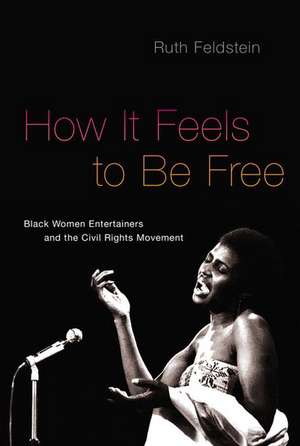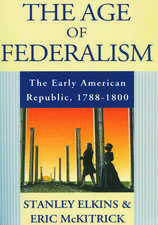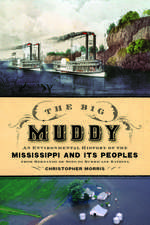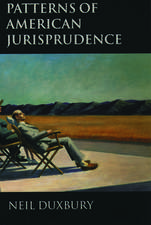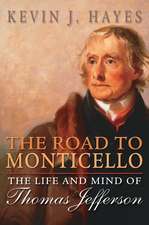How It Feels to Be Free: Black Women Entertainers and the Civil Rights Movement
Autor Ruth Feldsteinen Limba Engleză Paperback – 9 feb 2017
| Toate formatele și edițiile | Preț | Express |
|---|---|---|
| Paperback (1) | 226.93 lei 31-37 zile | |
| Oxford University Press – 9 feb 2017 | 226.93 lei 31-37 zile | |
| Hardback (1) | 309.31 lei 31-37 zile | |
| Oxford University Press – 23 ian 2014 | 309.31 lei 31-37 zile |
Preț: 226.93 lei
Preț vechi: 254.80 lei
-11% Nou
Puncte Express: 340
Preț estimativ în valută:
43.42€ • 47.32$ • 36.59£
43.42€ • 47.32$ • 36.59£
Carte tipărită la comandă
Livrare economică 12-18 aprilie
Preluare comenzi: 021 569.72.76
Specificații
ISBN-13: 9780190610722
ISBN-10: 0190610727
Pagini: 306
Ilustrații: 20 illus.
Dimensiuni: 234 x 155 x 20 mm
Greutate: 0.45 kg
Editura: Oxford University Press
Colecția OUP USA
Locul publicării:New York, United States
ISBN-10: 0190610727
Pagini: 306
Ilustrații: 20 illus.
Dimensiuni: 234 x 155 x 20 mm
Greutate: 0.45 kg
Editura: Oxford University Press
Colecția OUP USA
Locul publicării:New York, United States
Recenzii
Ruth Feldstein's important new book...is an original exploration of the little-known but central role that black entertainers, especially black women, played in helping communicate and forward the movement's goals... Ms. Feldstein brilliantly demonstrates the ways these women, their images and performance strategies animated transformative struggles for social change.
Ruth Feldsteins How It Feels to Be Free: Black Women Entertainers in the Civil Rights Movement aims to remind us that decades before todays technologies, entertainment and popular culture shaped and were shaped by politics. The book redirects, enriches, and complicates a commonly overwrought narrative that is frequently attached to the civil rights movement: that the movement was led and directed solely by Great Men whose work was straight-forwardly political or religiously motivated.
Feldstein's time-capsule views of Greenwich Village and Harlem in the late 1950s and early '60s are fascinating, as is the roster of performers she introduces from the realms of jazz, folk, theater and cinema.
One of the many remarkable aspects of Ruth Feldstein's How It Feels to Be Free: Black Women Entertainers and the Civil Rights Movement is that it manages simultaneously to trace histories of black thought, activism, and performance, while reconstructing histories of how journalists, writers, and others imagined blackness through the civil rights era."
Feldstein shows how these women's actions promoted, interacted with, and anticipated both black power and second-wave feminism. Many of the battles discussed are still being fought by contemporary black artists, and Feldstein's investigation provides valuable context for the ongoing struggle, 'render[ing] these social movements in all of their messy complexity and richness.'
Ruth Feldstein has decided to focus on black women entertainers and successfully produced a detailed, informative and easy read, which firmly places these talented ladies in the history of the civil rights and feminist movements of the '50s-70s
By placing black female musicians and actors at the center of Civil Rights history, Ruth Feldstein has written a tremendously important study that challenges readers to consider the imaginative activism of artists who performed progressive representations of black womanhood. How It Feels to Be Free takes readers on a critical journey across the mid-twentieth century freedom struggle by way of women performers who rehearsed, remixed, and renegotiated civil rights and black power politics, as well as emergent feminisms... Feldstein places their lives and careers in conversation with one another and, in doing so, recuperates the crucial role that black women of music, film and television played in transforming our contemporary world.
In this meticulously researched and brilliantly argued study, Feldstein shows how black women entertainers expanded the very meaning of politics as they performed, contested, and reshaped race and gender at the dynamic intersection of the civil rights movement, culture industries, and global mass culture. This stunning reinterpretation of women, gender, and the civil rights movement is essential reading for anyone interested in feminism, black activism, and the transnational cultural and political dimensions of 1950s and 1960s U.S history.
How It Feels to Be Free stands out as an enormous act of historical recovery. Ruth Feldstein masterfully illuminates the way in which black women entertainers actively participated in the civil rights struggle and helped to transform American and international race relations. A powerful and thought provoking book that will change the way we look at gender, civil rights, and the black freedom movement.
How It Feels to Be Free is a vital work of civil rights movement history and black performance scholarship.
Ruth Feldsteins How It Feels to Be Free: Black Women Entertainers in the Civil Rights Movement aims to remind us that decades before todays technologies, entertainment and popular culture shaped and were shaped by politics. The book redirects, enriches, and complicates a commonly overwrought narrative that is frequently attached to the civil rights movement: that the movement was led and directed solely by Great Men whose work was straight-forwardly political or religiously motivated.
Feldstein's time-capsule views of Greenwich Village and Harlem in the late 1950s and early '60s are fascinating, as is the roster of performers she introduces from the realms of jazz, folk, theater and cinema.
One of the many remarkable aspects of Ruth Feldstein's How It Feels to Be Free: Black Women Entertainers and the Civil Rights Movement is that it manages simultaneously to trace histories of black thought, activism, and performance, while reconstructing histories of how journalists, writers, and others imagined blackness through the civil rights era."
Feldstein shows how these women's actions promoted, interacted with, and anticipated both black power and second-wave feminism. Many of the battles discussed are still being fought by contemporary black artists, and Feldstein's investigation provides valuable context for the ongoing struggle, 'render[ing] these social movements in all of their messy complexity and richness.'
Ruth Feldstein has decided to focus on black women entertainers and successfully produced a detailed, informative and easy read, which firmly places these talented ladies in the history of the civil rights and feminist movements of the '50s-70s
By placing black female musicians and actors at the center of Civil Rights history, Ruth Feldstein has written a tremendously important study that challenges readers to consider the imaginative activism of artists who performed progressive representations of black womanhood. How It Feels to Be Free takes readers on a critical journey across the mid-twentieth century freedom struggle by way of women performers who rehearsed, remixed, and renegotiated civil rights and black power politics, as well as emergent feminisms... Feldstein places their lives and careers in conversation with one another and, in doing so, recuperates the crucial role that black women of music, film and television played in transforming our contemporary world.
In this meticulously researched and brilliantly argued study, Feldstein shows how black women entertainers expanded the very meaning of politics as they performed, contested, and reshaped race and gender at the dynamic intersection of the civil rights movement, culture industries, and global mass culture. This stunning reinterpretation of women, gender, and the civil rights movement is essential reading for anyone interested in feminism, black activism, and the transnational cultural and political dimensions of 1950s and 1960s U.S history.
How It Feels to Be Free stands out as an enormous act of historical recovery. Ruth Feldstein masterfully illuminates the way in which black women entertainers actively participated in the civil rights struggle and helped to transform American and international race relations. A powerful and thought provoking book that will change the way we look at gender, civil rights, and the black freedom movement.
How It Feels to Be Free is a vital work of civil rights movement history and black performance scholarship.
Notă biografică
Ruth Feldstein is Associate Professor of History at Rutgers University, Newark. She is the author of Motherhood in Black and White: Race and Sex in American Liberalism, 1930-1965.
